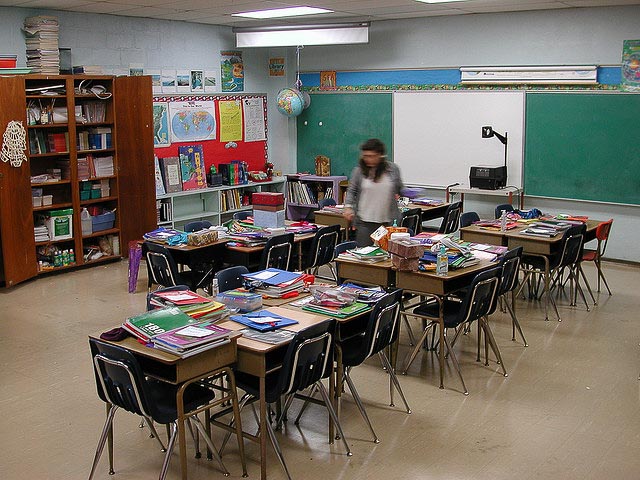Administrators who run school districts and academic researchers who study them would seem to be natural partners.
The former are in a position to enact policies that lead to better results for students. The latter can provide valuable research that shows which policies and practices work best.
Despite that seemingly strong fit, the truth is historically, collaboration between these two sides hasn’t been strong. In fact, their relationship is often strained.
As we’ve written before, school districts and universities have cultural differences, and their leaders often lack experience forging partnerships with each other. As a result, it can be difficult for the two groups to collaborate, even though their work should complement each other.
That’s about to change.
Today, we’re announcing the creation of a new entity within the Kinder Institute for Urban Research that will bring school district leaders and education researchers together in an effort to improve outcomes for students – and in particular, those who are economically disadvantaged.
It’s the first organization of its kind. We’re calling it the National Education Research-Practice Partnerships Network, or NERPP.
Already, the network includes partnerships between school systems and research institutions in a dozen cities, including Baltimore, Boston, Chicago, Dallas, Houston, Kansas City, Los Angeles, New Orleans, New York, Philadelphia, San Francisco and Washington, D.C. Most are relatively new partnerships.
“There are professional organizations out there for education researchers — but there aren’t as many for district leaders, and there are none for education researchers and school district leaders working together,” said Ruth N. López Turley, associate director of the Kinder Institute and founder of NERPP.
Turley noted that typically, national education organizations are housed in the East Coast. In NERPP, Houston will get a unique opportunity to host national education leaders on a regular basis.
Beginning in 2011, the Kinder Institute and the Houston Independent School District began working together through a partnership called the Houston Education Research Consortium.
That effort has provided valuable insights to HISD, shedding light on which bilingual programs work best, whether a specialized reading program is effective, and how parents choose schools.
The network will allow similar partnerships across the country to learn from each other. “We’re not the first, and we’ve learned a lot from others, just as others have learned from us,” Turley said.
“The time was right to develop a national network to facilitate the work researchers and district leaders are doing so we can all learn from one another and improve the connection between research and policy,” Turley added.
NERPP is supported by generous grants from organizations including the William T. Grant Foundation ($300,000), the Laura and John Arnold Foundation ($200,000), the Wallace Foundation ($150,000), and the Annie E. Case Foundation ($50,000).
The $700,000 in grant funding will allow the Kinder Institute to hire a national coordinator and a program manager to oversee NERPP. It will also support comparative research that examines education issues of interest to many districts.
The announcement of the NERPP network coincides with our second annual forum for the network’s members. This week, we’re hosting officials who participate in school district-university partnerships across the nation. Each partnership is sending both university and school district representatives.
The forum will highlight the best ways to help these partnerships thrive, including how to develop a joint research agenda, how to share data, and how to apply research-based knowledge. It will also highlight findings and trends those partnerships have already identified, including conversations with foundations, government leaders, and researchers who study these partnerships.
“It’s great to bring people here who study these partnerships with the aim of advancing their mission, which aligns with that of the Kinder Institute,” Turley said.

